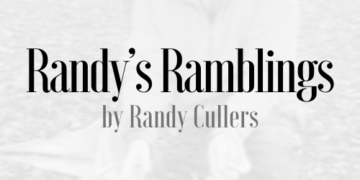Last time I shared some ideas on the importance of balancing candor and care when we have what are usually viewed as difficult conversations with the people we care most about. While my goal was to provide some perspective around how important that balance really is, I realize that didn’t offer much of the how-to that most of us look for so we can really get value from it…
Since sharing that, Cindy and I had the chance to work through two full lessons on the topic with a group of outstanding project managers and superintendents at Lantz Construction Company in Broadway; the first lesson detailing The Power of a Candid Conversation and the second focusing on How Leaders Improve Results by Balancing Candor with Care. Since I’ve already introduced some of the basics here, I thought going into more of the how-to’s may be helpful.
Before you tune me out though, thinking that this is geared at someone in a leadership role and only applicable in the business world, understand that the majority of everything Cindy and I do to help leaders build stronger teams is geared at developing solid relationships – and that’s exactly what each of us want with the friends and family members we care most about, right?
The second lesson we worked through with the team at Lantz shared eleven questions we can ask ourselves when we’re preparing for one of those tough conversations, one where we really need to balance candor and care. We’ll go through some of those in the months ahead. For now, let’s look at a few things that need to be on our minds in basically every interaction if we want the people we’re communicating with to know we truly value them.
Are we listening? What are we learning? And are we leading?
In far too many conversations, it’s easy to get wrapped up in thinking about how we’re going to respond instead of paying close attention to what we’re being told. Whether our mind goes to a similar situation we’ve experienced or we’re just that wired up about the point we want to get to, we can miss critical details and we send a message that what the other person is telling us is less important than what we have to say…
If we can be intentional about what we’re learning from the conversation, we’re more likely to remain engaged in what our friend or family member is sharing, and we’ll certainly show that we value them.
So what’s that Are we leading? part all about? This isn’t about position or authority, it’s about the relationship! John Maxwell says that “the true measure of leadership is influence. Nothing more, nothing less.” When we’re purposeful about how we listen and learn as much as we can from the person we’re interacting with, we build the influence we have with them – and that’s leadership!
Next time, we’ll start working through some of the questions we can ask ourselves when we prepare for a tough conversation…

































